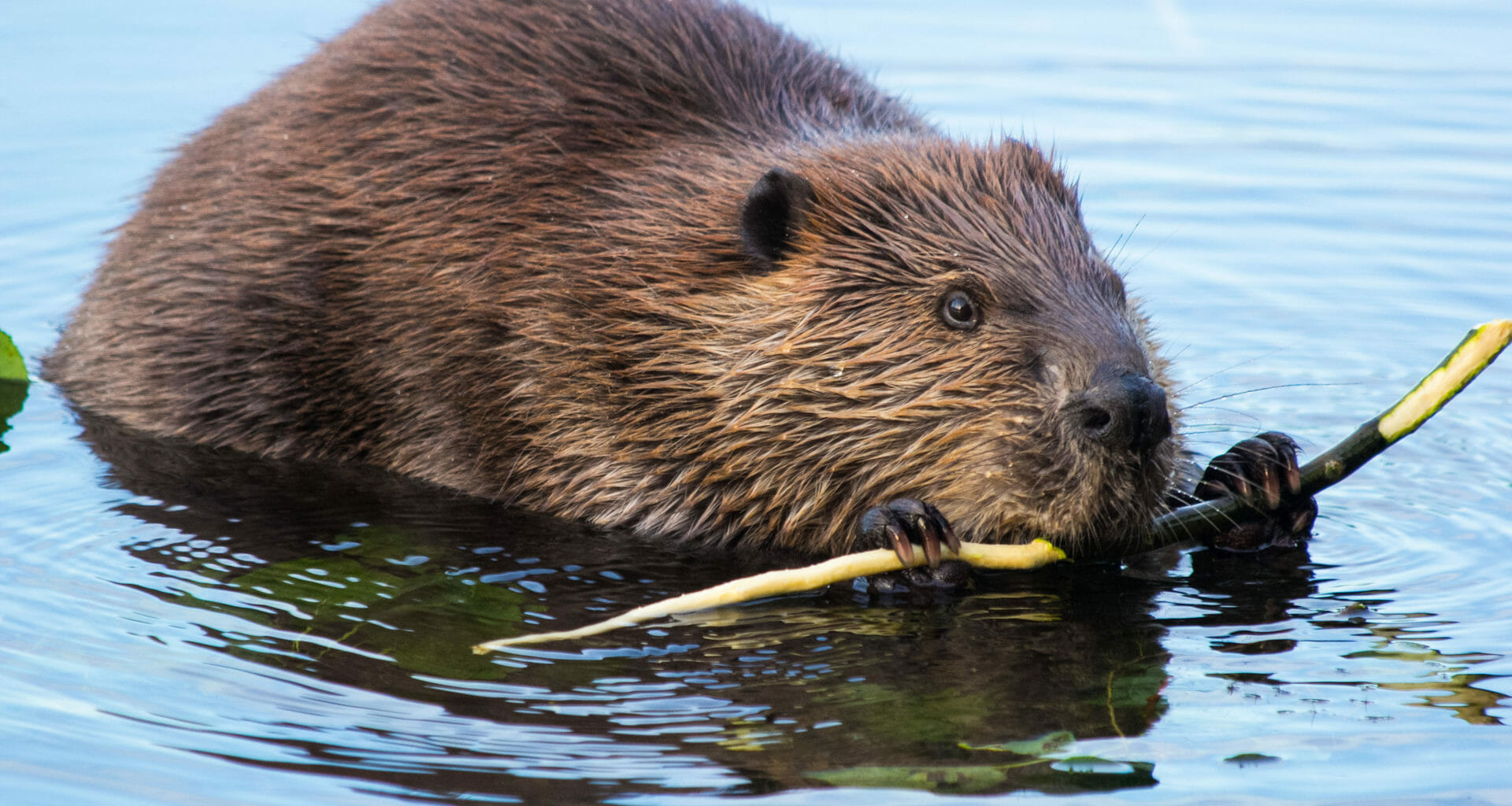Conservationists have urged NatureScot to stick to the timetable it set for Scotland’s new policy on wild beavers, to save animals from being shot.
In our latest podcast, Richard Baynes talks to campaigners, landowners and NatureScot about the challenges and benefits of relocating beavers.
Francesca Osowska, chief executive of the wildlife agency, told The Ferret in an exclusive interview that the new rules for translocations of problem beavers should be in place by July. Translocation involves safely trapping and moving beavers to a more suitable area.
Conservationists say it is vital to stick to this timetable to make sure farmers, whose fields are flooded by the animals’ dams, have options other than “lethal control” to deal with animals.
More than 200 beavers have been shot under licence by land managers since the reintroduced animals were made a protected species in May 2019, mainly in the flat farmland around the Tay where most of the 1000 or so in Scotland live.
This week saw the second release into the wild of a family of beavers on farmland at Argaty near Doune. This translocation within a catchment where beavers already live – following a similar one on the same farm, last year – brought to ten the total number of animals saved from possible death by translocation within Scotland.
In November the Scottish government pledged a much bigger change, to allow translocations “out-of-catchment” – to anywhere in Scotland where land managers want them. This was hailed as a game-changer by conservationists to allow more animals to be saved.
Since then no such translocations have happened, and NatureScot says it is still drawing up a strategy so such moves can take place.
But Osowska said the new strategy will come out in the summer – hopefully by July: “What that will do is detail how we want to manage beaver across Scotland, what the requirements will be in terms of people who want to receive beavers, and what are some of the practical implications,” she said.
Shooting of beavers normally stops between March and August while they have dependent young, known as kits. Conservationist and farmer Tom Bowser, whose land is now host to the two translocated beaver families, said: “We’ve got a bit of time but I think we do need to be looking to get beavers on the move and away from the conflict areas by the end of the summer.
“We have to give NatureScot the space to do that because they do have a government mandate now. I hope we can get them on the move: we have to get the cull numbers down.”
Gill Spalding’s family run the farm in Perthshire where the latest family of beavers to arrive at Argaty came from. She said her family was initially happy to host the animals, but when their dam rose to 2.5 metres high, and 20 metres long, it impacted on the farm too much, and they called for help from NatureScot.
She was delighted with the agency’s response but believes she could have got a licence to cull the animals much quicker than the licence to move her animals was granted. “The Scottish government really needs to make it easier for landowners to relocate rather than shooting,” she said.
If we want to see this species restored, everyone has to get their act together
Dr Roisin Campbell Palmer, of the Beaver Trust
Osowska said one factor which could help beaver spread was new attitudes among land managers: “What is changing is land managers and land owners’ … understanding of beavers, so I would not completely agree that farmers are just reaching for the gun,” she said. “Our relationships with them have changed … we are working more actively with them.”
She could not say how much money would be set aside to deal with beavers under the new policy but said there would be extra cash for trapping, environmental impact assessments, and consultations with neighbours of the sites receiving animals.
But she said any incentive scheme for farmers to live with the animals on their land – which conservationists and farmers have called for – would most likely come from whatever takes the place of the EU subsidy system under the Common Agricultural Policy (CAP).
Dr Roisin Campbell Palmer, of the Beaver Trust, traps and cares for problem animals before rehoming them – usually to rewilding enclosures in England and Wales. She said messages from the Scottish government and NatureScot on translocations were very positive. She hoped a “robust and pragmatic” translocation strategy would be in place in time for translocations to start again in August.
She said: “Resources are absolutely key – any beaver mitigation or management strategy absolutely needs funding. The government haven’t actually put figures on this and there are some concerns in the landowning community that maybe the budgets aren’t there for the long term.
“If we can’t get this strategy together for this summer I would have concerns about how we move forward with wider beaver restorations in Scotland … time is of the essence now. If we want to see this species restored, everyone has to get their act together. “
She said if Scotland ran out of translocation options it would not be the landowners’ fault, and added: “If they don’t have the option of translocation then we could be back to lethal control.”
This report was updated at 10.35 on 18 February 2022 to delete the words “any compensation” from the comment by Osowska referring to incentive schemes.
Photo Credit: iStock/Christina Radcliffe














